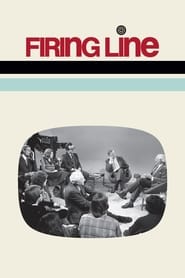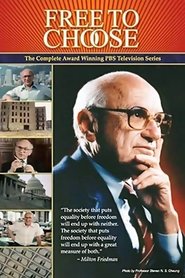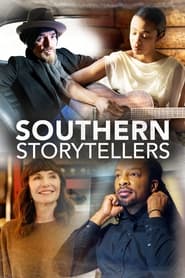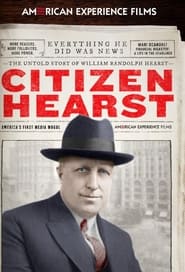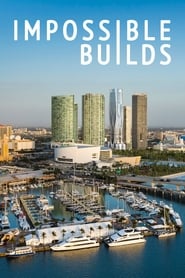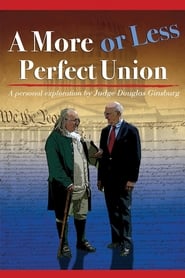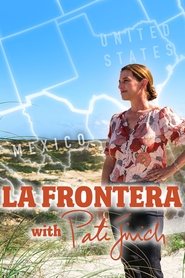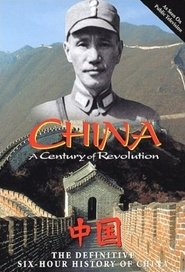Pbs TV Series - Page 32
-
Firing Line
1966
star 7.7Firing Line was an American public affairs show founded and hosted by conservative William F. Buckley, Jr., founder and publisher of National Review magazine. Its 1,504 episodes over 33 years made Firing Line the longest-running public affairs show in television history with a single host. The erudite program, which featured many of the most prominent intellectuals and public figures in the United States, won an Emmy Award in 1969. -
Through The Grape Vine
2011
star 3Vine Talk is a new and unique celebrity talk show full of great stories, discussion and discovery. Hosted by Stanley Tucci and featuring an ensemble panel of well-known entertainment personalities and celebrity chefs, the show demystifies the world of wine by making it accessible and enjoyable for all. -
Wisconsin Life
2014
Wisconsin Life
2014
Celebrate Wisconsin's people and places with host Angela Fitzgerald. Learn something new, meet someone unexpected. Wisconsin Life is a collaboration from PBS Wisconsin and Wisconsin Public Radio. Watch, learn, listen at wisconsinlife.org. -
Free to Choose
1980
star 8.2Free to Choose is a ten-part television series broadcast on public television by economists Milton and Rose D. Friedman that advocates free market principles. It was primarily a response to an earlier landmark book and television series: The Age of Uncertainty, by the noted economist John Kenneth Galbraith. Milton Friedman won the Nobel Memorial Prize in Economics in 1976. -
Southern Storytellers
2023
Celebrate Southern identity through the eyes of contemporary creators of literature, music, film and TV -
Kevin Belton's New Orleans Kitchen
2018
Chef Kevin Belton explores the mix of cultures that make up the distinctive food of New Orleans. -
Market Warriors
2012
star 7.5Market Warriors is an American reality television series that follows four professional antiquers as they buy assigned items at flea markets and antique shows on a budget. The items are then sold at auction, where the antiquers compete for the highest profit, which is most often determined by the lowest loss. Market Warriors has a number of connections to Antiques Roadshow: both are produced by WGBH, Boston, hosted by Mark L. Walberg, and share the participation of appraisers Miller Gaffney, Kevin Bruneau, John Bruno, Bene Raia, and Bob Richter. Fred Willard was the original host of the show; however, after his arrest for engaging in a lewd act at an adult movie theater, PBS dropped him as host and had Walberg re-voice the episodes Willard had already completed. On March 13, 2013, PBS announced it was ending production of Market Warriors, the series that premiered in July 2012 under Market Wars as a partner program to longtime ratings hit Antiques Roadshow, according to a March 14 WGBH, Boston, internal memo to -
Citizen Hearst: An American Experience Special
2021
William Randolph Hearst's media empire in the 1930s included 28 newspapers, a movie studio, a syndicated wire service, radio stations, and 13 magazines. -
Lost LA
2016
Lost LA
2016
Much of Los Angeles's past is lost to history, but through the region's archives, we can uncover the inspiring dreams and bitter realities that built the modern-day metropolis. -
Colombia - Wild and Free
2022
star 10Journey to South America to explore the magnificent flora and fauna of Colombia, from the wild, largely deserted Pacific coast to the snow-covered volcanoes of the Andes, from the plains of the Orinoco region to the rainforests of the Amazon. -
In the Making
2020
In the Making
2020
An artist celebrating Black womanhood. A Hawiian poet fighting for Indigenous rights. A jazz musician who’s redefining his craft. Meet eight emerging artists from underrepresented communities who are shaking up their respective fields. -
Hacking Your Mind
2020
star 10Follow host, Jacob Ward from the farthest corners of the globe to the inside of your mind as he sets out to discover we are not who we think we are. This four-part series examines how easy it is to hack your mind and what you can do. -
Impossible Builds
2018
star 7Learn about the creation of some of the world’s most ambitious and technologically advanced buildings. From subaquatic homes to futuristic towers and pencil thin skyscrapers, see how these previously impossible structures are taking shape. -
Food Forward
2012
Food Forward
2012
How did something so fundamental as food, go so fundamentally wrong? Instead of nourishing us, what we eat and the way we produce it threaten the air we breathe, the water we drink and the dirt under our feet. And yet, too much 'food' television focuses on celebrity chefs and cooking competitions and not enough on where our food comes from and the impact it has on our planet, our country, our bodies, and our souls. Food Forward opens the door into a new world of possibility, where pioneers and visionaries are creating viable alternatives to the pressing social and environmental impacts of our industrial food system. Across the country, a vanguard of food rebels--farmers, chefs, fishermen, teachers, scientists, and entrepreneurs--are creating inspired, but practical solutions that are nourishing us and the planet. These are stories America needs to hear. This is Food Forward. -
A More or Less Perfect Union
2020
Hosted by Judge Douglas H. Ginsburg, A More or Less Perfect Union features perspectives and interviews from constitutional experts of all stripes - liberal, conservative and libertarian - examining the key issues of liberty: freedom of religion and press, slavery and civil rights, the Second Amendment, separation of powers and more. Constitutional experts, citizens and in dramatic recreations, the Framers themselves--weigh in on the unique document, the rule of law, the three branches of government separated to prevent tyranny, and the debate over originalism versus a living Constitution. -
La Frontera With Pati Jinich
2021
Pati Jinich, chef and James Beard Award-winning host, experiences the culture, people and cuisine around the US-Mexico border. -
The Secret City Adventures
0000
star 1The Secret City Adventures was a series of television programs designed to teach children how to draw. The series was produced by Maryland Public Television and aired on PBS and TVOntario in the late 1980s. The series starred Mark Kistler as Commander Mark who led viewers through various drawing exercises and examples. The show also featured other characters, including Moonbot, Unibear, Pigasus, Furbles, Violet the Dragon, and others. Occasionally, guest artists would appear on the show to demonstrate other art forms. -
Inside Appalachia
2016
Inside Appalachia
2016
West Virginia Public Broadcasting series about the Appalachian region and peoples -
China: A Century of Revolution
1989
Chronicles China’s turbulent 20th century through rare archival footage and eyewitness accounts, tracing its most violent era marked by foreign invasions, civil war, and political upheaval. The documentary examines the decades-long conflict between Mao Zedong’s Communist forces and Chiang Kai-shek’s Nationalists (the latter supported by the U.S.), culminating in Mao’s establishment of the People’s Republic in 1949. It also explores Mao’s radical attempts to reshape China, followed by Deng Xiaoping’s transformative market reforms after Mao’s death, which steered the nation toward economic modernization.
